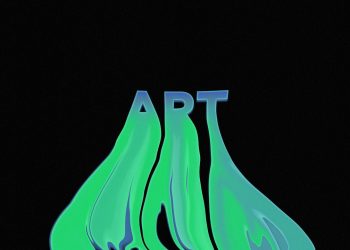No products in the cart.
Navigating Career Paths: The Power of Micro-Experiments
Micro-experiments can help young professionals validate their career interests before diving in. Learn how short-term projects can guide your path.
In a world where career paths twist and turn like a labyrinth, the journey of self-discovery can feel daunting. Many young professionals find themselves standing at a crossroads, unsure which way to go. Enter the concept of micro-experiments: small, manageable projects that allow individuals to test their interests before making significant commitments. These experiments can be the compass that guides you through the fog of uncertainty.
Imagine a recent college graduate, Emily, who majored in psychology but harbored a secret passion for graphic design. Instead of diving headfirst into a full-time role, she decided to take on a series of short freelance gigs—designing logos for local businesses and creating social media content. This not only helped Emily explore her creative side but also offered her a clearer picture of whether a career in design was right for her. By engaging in micro-experiments, she could validate her interests without the pressure of a long-term commitment.

This approach is gaining traction among young professionals, especially in a rapidly changing job market characterized by unpredictability and competition. Micro-experiments can take various forms, including internships, volunteer opportunities, or even online courses that allow you to dip your toes into a new field. According to a 2023 report by the National Association of Colleges and Employers, 70% of students who participated in internships reported a clearer understanding of their career goals[1].
These small-scale endeavors offer several advantages. They provide tangible experience, enabling you to build a portfolio while simultaneously expanding your professional network. Each project can serve as a stepping stone, offering insights into what you enjoy and what you’d rather avoid. For instance, a student named Raj took a part-time role at a startup while studying computer science. His experience in a fast-paced environment not only honed his coding skills but also revealed his affinity for teamwork and leadership—elements he might not have discovered in a traditional classroom setting.
His experience in a fast-paced environment not only honed his coding skills but also revealed his affinity for teamwork and leadership—elements he might not have discovered in a traditional classroom setting.
However, not all micro-experiments yield the intended results. Some individuals may find that their initial interests don’t align with reality, leading to frustration or disillusionment. In such cases, the key is to embrace failure as part of the learning process. Each setback can provide valuable lessons about personal preferences and industry expectations.
Experts recommend approaching these experiments with an open mind and a willingness to pivot. “It’s important to remember that the goal of a micro-experiment isn’t necessarily to find your dream job but to gain insights into your preferences and strengths,” says Dr. Claire Thompson, an educational psychologist specializing in career development. “The more experiments you conduct, the clearer your path will become.”[2]
As you consider embarking on your own micro-experiment journey, here are some practical tips:
- Identify Your Interests: Reflect on what excites you. Is it problem-solving, creativity, or working with people? Pinpointing these interests can help you choose relevant projects.
- Start Small: You don’t need to commit to a year-long internship. Short-term projects, like a weekend workshop or a month-long freelance gig, can provide quick insights.
- Network: Leverage platforms like LinkedIn to connect with professionals in your field of interest. Informational interviews can lead to opportunities you hadn’t considered.
- Document Your Journey: Keep a journal or digital portfolio of your experiences. Reflecting on what you learned can help you make informed decisions about your future.
- Stay Flexible: Be prepared to shift your focus based on what you learn. The beauty of micro-experiments is that they allow for exploration without long-term commitment.
In a world where job security feels like an illusion, micro-experiments offer a refreshing alternative to traditional career navigation. They empower young professionals to take charge of their destinies, giving them the freedom to explore multiple paths without the weight of expectation. As the job market continues to evolve, those who embrace this experimental mindset will likely find themselves better equipped to adapt to new challenges and seize unexpected opportunities.
Claire Thompson, an educational psychologist specializing in career development.
Ultimately, the journey through the career maze doesn’t have to be a lonely one. By engaging in micro-experiments, you can illuminate your path with the knowledge gained from each small step, leading to a career that not only pays the bills but also sparks joy. So grab your compass, take your first step, and trust in the process of discovery.











